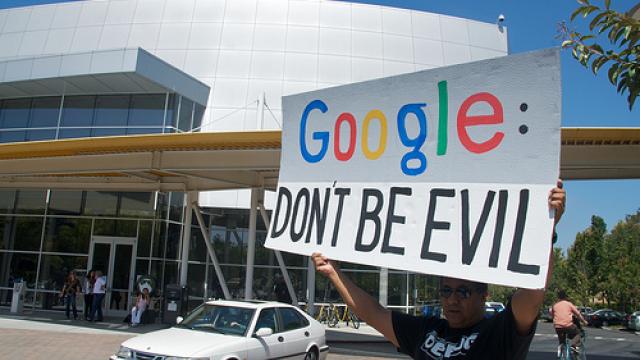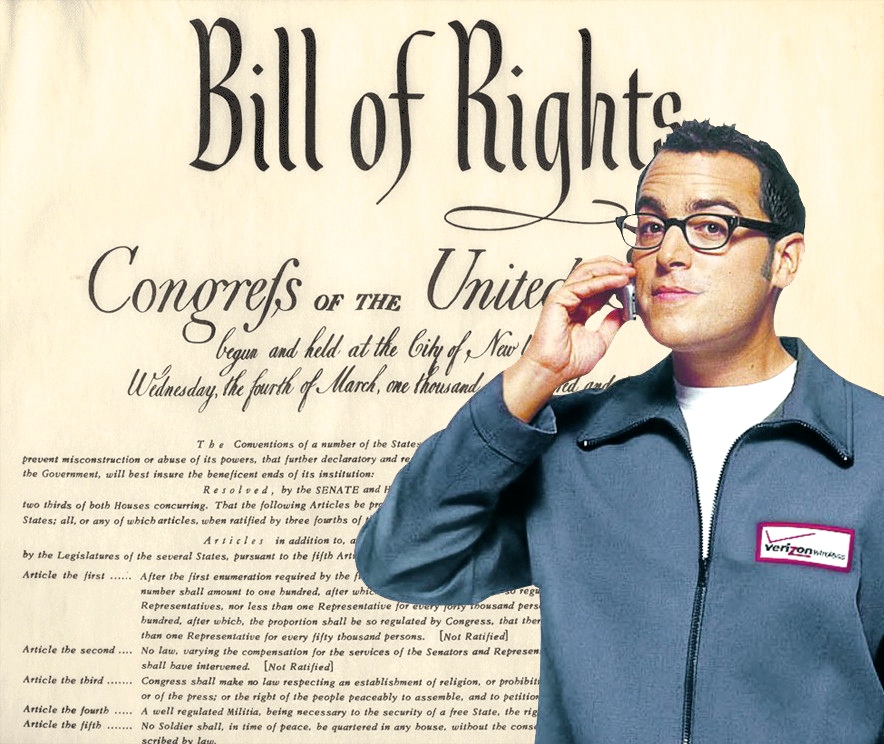
In the two weeks since a federal court struck down vital portions of the Federal Communications Commission’s Open Internet rules, net neutrality’s most powerful advocate has yet to speak up.
In 2006, Google was net neutrality’s staunchest ally. As the corporate leader in the fight, the company not only advocated publicly, but played a major role in defining the parameters of the battle. Just listen to the pleading, almost passionate language of this summer 2006 blog post, penned by then-CEO Eric Schmidt and posted on Google’s site:
The Internet as we know it is facing a serious threat. There’s a debate heating up in Washington, DC on something called “net neutrality” – and it’s a debate that’s so important Google is asking you to get involved. We’re asking you to take action to protect Internet freedom.
Fast-forward to 2010. The language of this August 2010 blog post is softened considerably as Google, by then a substantially diversified company, owner of properties like YouTube and partner of wireless carriers, suggests that it’s making the best of a complicated situation:
But given political realities, this particular issue has been intractable in Washington for several years now. At this time there are no enforceable protections – at the Federal Communications Commission or anywhere else – against even the worst forms of carrier discrimination against Internet traffic. With that in mind, we decided to partner with a major broadband provider on the best policy solution we could devise together. We’re not saying this solution is perfect, but we believe that a proposal that locks in key enforceable protections for consumers is preferable to no protection at all.
The accompanying proposal, drawn up with Verizon, attracted criticism for suggesting that wireless networks were exempt from strict net neutrality. Google had given up some ground, but it hadn’t given up.
That last blog post — nearly four years old — is Google’s last such statement on the topic. In the two weeks since the court ruling, the company has remained silent, letting other players like Netflix wade into the fight. Last week, when BuzzFeed inquired as to whether the company’s position has changed at all since its 2010 statement, the company did not respond. In the meantime it posted a YouTube “speed test” site, which seems to aim to influence ISPs not through policy, but through a sort of passive-aggressive public shaming.
The company’s now-cautious approach to what was once its only public political cause is indicative of a troubling reality for net neutrality advocates: The policy’s strongest allies have outgrown it.
Two weeks ago, in the aftermath of the federal court ruling, Harold Feld, a senior vice president at Public Knowledge, told BuzzFeed that the fall of net neutrality could “have profound implications for the internet’s ecology.” Feld expressed concern that companies that were willing to fight for net neutrality in the old days won’t be such strong allies in 2014, now that they are the largest incumbents on the internet. “They’re big, and they can negotiate,” he said. “Once you’re on the inside, exclusion doesn’t seem like such a bad thing. If you’re Google, maybe getting access for YouTube is what you want, rather than what you want to fight.”
In a follow-up conversation this afternoon, Feld told BuzzFeed that Google’s near two-week silence wasn’t a surprise. “I think they really learned from the 2010 experience that teaming up with carriers is very bad for them in terms of their relationships with their consumers…and that lesson has stuck,” he said.
More importantly, Feld notes, Google is a very different place than it was four years ago. “Now they’re providing broadband services to a lot of places with Google Fiber,” he said. “They are much more into the wireless world in terms of overall operating systems and like many tech players their lines are blurred.”
“They’ve learned over the years the lesson that every company learns, which is, ‘Don’t say anything if you don’t have to.’ In this case, nobody is really sure what’s next in this fight. Google can talk privately or quietly but they have no reason to make a big public stand and they’re aware that making a big public stand makes you a big public target.” While it’s possible that Google’s priorities haven’t changed much from four years ago, and that the silence is just a new strategy, the simple fact that it’s no longer in the search giant’s interest to even engage speaks volumes.
For now, the corporate net neutrality torch has been passed to Netflix and its outspoken CEO, Reed Hastings. In a statement last week, the company took aim at Verizon, whose lawsuit toppled the FCC’s rules, and ISPs, which can now “legally impede the video streams that members request from Netflix, degrading the experience we jointly provide.” Just as 2006 Google was a simpler company, focused primarily on search and advertising, Netflix has a comparatively simple mission and relationship with ISPs and carriers: to deliver video of high quality at a low price. It has a lot to gain and a lot to lose, and significant changes to its relationship with the internet have the potential to be devastating.
For net neutrality, Netflix is a big ally — not the biggest. And given what happened last time around, supporters would be right to to be wary. Hastings sounds pretty good now. But what will he sound like eight years from now?
3 WAYS TO SHOW YOUR SUPPORT
- Log in to post comments












